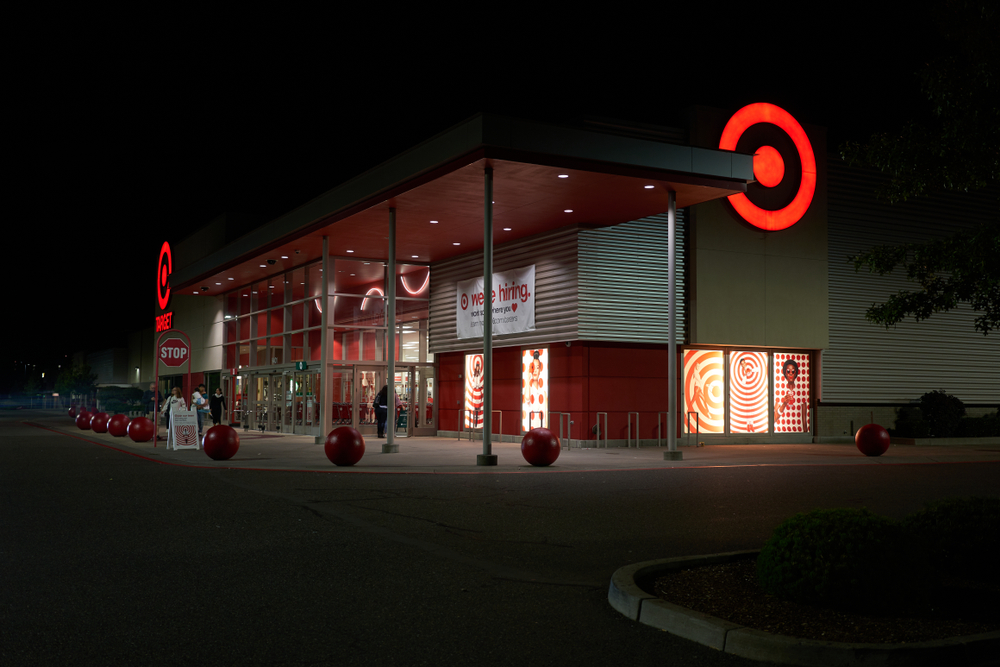It's no secret that crime in Portland, Oregon, has become increasingly worse in recent years. In 2022, the city saw a 30% increase in homicides and a 10% increase in robberies. Property crime, such as theft and burglary, has also increased significantly. This rise in crime has had a devastating impact on businesses in Portland. The recent announcement by Target to close three of its stores due to theft and organized retail crime is the latest blow to a city already grappling with these challenges. Yet, it's not just Portland. The unsettling trend seems to be rippling across major U.S. cities, casting a dark shadow on the future of retail.
Target recently declared its intent to close nine stores in cities including New York, Seattle, San Francisco, and notably, Portland. Citing organized retail crime and theft, the company has painted a grim picture: not only is the safety of their teams and guests at stake, but these issues have also lead to "unsustainable business performance." These closures are slated for October 21.
In Portland, the closure of the three Target stores – the Downtown Galleria, SE Powell Blvd., and NE Halsey St. – is particularly disheartening. At the time of writing this there are six Targets open in Portland. Yet, Target isn't the only one retracting from the city's retail landscape. It's not the first business to sound the alarm bells. Walmart and Nike have also recently shut their doors in Portland, magnifying concerns about the city's deteriorating safety and business environment.
However, the ripple effects of organized retail crime are felt nationwide. Giants like Walmart, Nordstrom, and Walgreens Boots Alliance are testament to this. Nordstrom's decision to close its flagship store in San Francisco, and Walmart CEO Doug McMillon's warning about potential future closures if theft continues unabated, are clear indicators of the dire situation.
The surge in crime has triggered a response from law enforcement and legislative authorities. Multnomah County’s District Attorney has shifted focus toward cracking down on organized retail theft, as well as auto thefts prevalent in the region. Moreover, Oregon lawmakers have initiated several policies targeting large-scale retail theft operations. This includes boosting funding for both state and local police departments.
What does this mean for Portland's future? As an Oregonian and writer deeply invested in this city, it's impossible not to feel a growing unease. The continuous exodus of big retail brands sends a message, and it's not a positive one. If these giants, with their resources and infrastructure, are finding it challenging to operate safely, what hope is there for smaller businesses? And, more importantly, what does this signal for the future of the Rose City?
From an outsider's perspective, one might see only the closing stores, rising crime rates, and a city in decline. However, for those who call Portland home, the story is more complex, layered with history, culture, and community spirit. There's an undeniable urge to rally, to reclaim the city's vibrancy, and to safeguard its essence.
But the challenges are real. Target, for instance, despite its extensive anti-theft measures – including beefed-up security teams, locked cases for items, and staff training – has found it tough to counter the tide of crime. Legislative efforts, like the Inform Act and the proposed Combating Organized Retail Crime Act, are steps in the right direction. Yet, laws alone won't reshape the ground realities.
The immediate future seems uncertain. If unchecked, this escalating trend of crime might redefine Portland's retail scene, with more stores potentially locking their doors for the sake of safety and financial viability. As someone deeply concerned about Portland, this is a distressing vision, and one that hopefully will rally the community, stakeholders, and lawmakers to restore the city's reputation and vibrancy.













